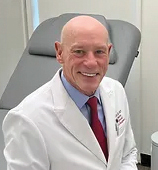
More Senior Health Articles
Geriatric Sexuality

Geriatric sexuality is an important and often overlooked aspect of seniors’ overall well-being and quality of life. Influenced by cultural, religious, and other social factors, attitudes towards sexuality vary among all adults. Some may hold conservative views about sex, while others may embrace sexuality enthusiastically.
While precise statistics may vary across studies, research shows that a significant percentage of older adults remain sexually active. According to a large-scale study published in JAMA Internal Medicine in 2016, which surveyed over 3,000 men and women aged 57 to 85, around 54% of men and 31% of women reported being sexually active in the past year. Another study published in the Archives of Sexual Behavior in 2018 found that approximately 60% of men and 40% of women aged 65 and older reported being sexually active.
It’s important to recognize that sexual activity can encompass a wide range of behaviors and expressions of intimacy. It is not limited solely to penile-vaginal intercourse. Emotional intimacy, expressions of affection, and non-sexual forms of connection contribute to overall sexual well-being among people generally and not less so as they age. Individual attitudes and experiences with sexuality vary greatly, and it’s important to respect the choices and preferences of older adults regarding their sexual lives.
Regular sexual activity can improve quality of life by helping to reduce stress, improve cardiovascular health and increase one’s spiritual sense of overall well-being. However, aging does come with changes in sexual function. Nevertheless, the need for physical expression of intimacy is life-long and so it is important to understand what defines normal changes and to know that there may be effective interventions available to address these issues.
Some older adults may face barriers to enjoying a fulfilling sexual life, such as lack of privacy, health concerns, and social stigma. Candid, trusting, communication between partners can help address these challenges.
Age-related health conditions such as chronic illnesses, mobility issues, and cognitive impairment can interfere with sexual experiences. Conditions like diabetes, cardiovascular disease, arthritis, and dementia certainly affect sexual function. Both men and women might experience a decline in desire for sexual intercourse. Alcohol, opioid pain relievers and tobacco are major detriments to sexual function especially as we age. Quite a few common prescription and over-the-counter medications can also interfere with sexual function.
As men age, they generally experience a decline in the rigidity of erections, often have difficulty achieving climax and often experience less intense orgasms. A “dry” orgasm is sometimes due to degenerative spine disease, prostate disease or medications. Women might experience discomfort with penetrative intercourse due to more tender genital tissues, vaginal dryness and reduced lubrication during sexual relations. Very often there are effective remedies for these problems. It’s also important to keep an open mind about sharing pleasurable sexual intimacy in ways other than penetrative intercourse.
While physical sexual activity might play an important role in a relationship, emotional intimacy and deeply trusted companionship are critical. Expressing affection and engaging in non-sexual forms of intimacy inspire satisfying sexuality and contribute to overall sexual satisfaction.
Nevertheless, geriatric sexuality is not limited to individuals in long-term partnerships. Older adults might seek new relationships or partners.
All individuals—especially geriatrics—who are experiencing difficulty with sexual relations may glean considerable information from resources in the library or on the internet. However, a word of caution: almost everyone cares about sex. That means of course that there is an enormous market for a variety of products and interventions that promise to restore more youthful virility. One must be extremely careful about subscribing to recommendations and purchasing products that are not endorsed by healthcare professionals. Be wary of pursuing hormone replacement from sources other than your doctor. There are potential adverse reactions to hormones, some very dangerous. Most family practice doctors, internists, geriatricians and gynecologists are well-versed in this area but if your doctor is not, do not give-up; just consult a different provider. Most often, physicians and nurse practitioners with expertise in geriatric sexuality will list that among the services they offer.
One final point: if your sex life isn’t fulfilling and you’re already under the care of a licensed provider, consider engaging a family therapist who has expertise in this area. I recommend selecting a therapist who is also of older age.
Other Articles You May Find of Interest...
- 3 Types of Exercises Best for Seniors With Arthritis
- Independence Boost: How Medical Alerts Help Chronic Conditions
- Over-the-Counter Hearing Aids (OTC)
- Therapeutic In-Home Sauna Service for Homebound Seniors
- Staying Active and Engaged: A Guide to Enhancing Senior Wellbeing
- Technology in Nursing Homes: How Tech is Improving Care and Communication Within Nursing Homes
- Ensuring Bathroom Safety

















